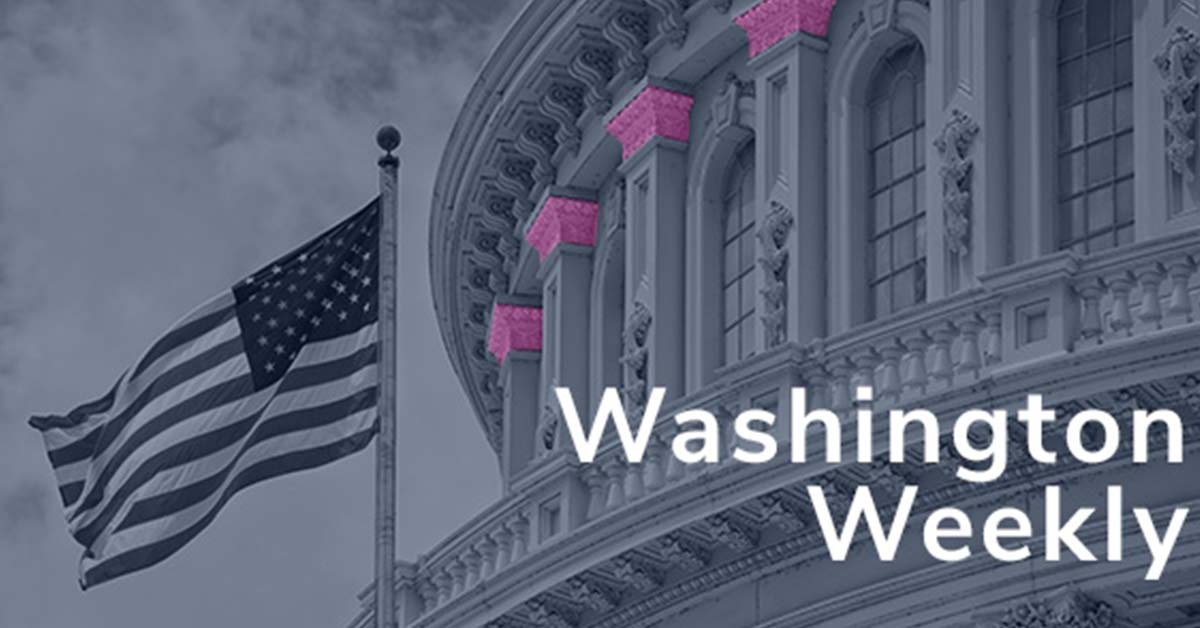Becker’s Washington Weekly: Week of May 24, 2021

The House
Last week, the House passed a bill to create an independent, bipartisan commission charged with investigating the January 6th attack on the Capitol. 35 House Republicans voted to pass the bill, ignoring opposition from House Republican Leader Kevin McCarthy (R-CA) and Senate Republican Leader Mitch McConnell (R-KY).
Despite President Joe Biden’s call on Congress to pass a police reform bill by May 25th – the anniversary of George Floyd’s death – Rep. Karren Bass (D-CA) has said the House will not meet that deadline, but that she is hopeful a deal will be reached soon.
The House Science, Space and Technology Committee, along with the Investigations and Oversight Subcommittee and the Research and Technology Subcommittee, will hold a joint hearing tomorrow on the SolarWinds hack and cybersecurity supply chain. The House Financial Services Committee will hold a hearing on Wall Street oversight, featuring the CEOs of the country’s largest banks. Additionally, the House Appropriations Financial Services Committees’ General Government Subcommittee will hold oversight hearings of the Treasury Department and the SEC.
The House will be in recess for Memorial Day after this week until June 14th.
The Senate
The Senate continues to debate the Endless Frontier Act, S. 1260, this week. The bill went through numerous changes last week in the Senate Commerce, Science, and Transportation Committee markup. Several Republican amendments are still pending which take an aggressive approach on China.
The Senate Environment and Public Works Committee will consider its bipartisan, $304 billion surface transportation reauthorization bill.
The Senate Judiciary Committee will mark up three bills this week, two of which are focused on criminal sentencing guidelines. The Senate Health, Education, Labor and Pensions Committee will markup healthcare related bills.
After the Memorial Day recess, the Senate will return to vote on June 7.
The Administration
This week is crucial for the advancement of a bipartisan infrastructure bill. President Biden has reduced his proposed infrastructure bill from $2.25 trillion to $1.7 trillion following bipartisan negotiations with Republican leadership. While the counteroffer brings Republicans and Democrats closer on their asks, Republican leadership says there is no consensus on how to pay for the measure. President Biden is hoping for a bipartisan solution but has said that doing nothing on infrastructure is not an option, indicating that Democrats may use budgetary reconciliation to pass his objectives with a simple majority in the Senate.
Additionally, President Biden signed an executive order aimed at increasing the federal government’s cybersecurity posture in response to the recent SolarWinds and Colonial Pipeline attacks.
Becker’s Federal Lobbying Team will continue to monitor these developments as they evolve and will share with you as soon as information becomes available.





